
Herb Alpert
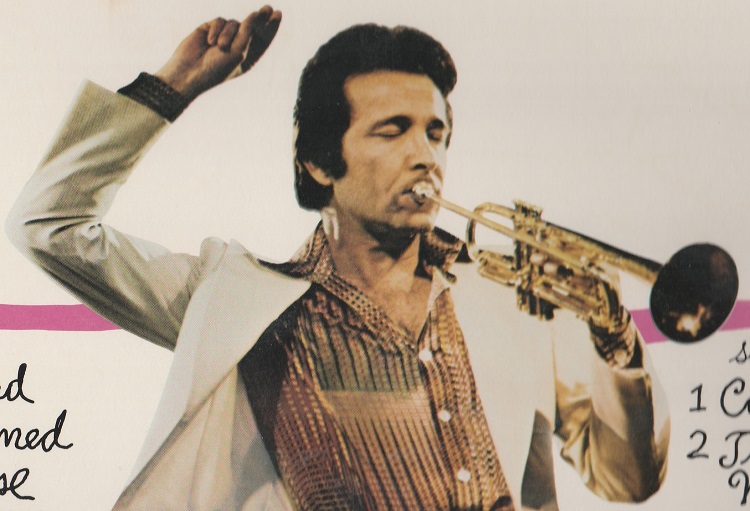
In the 1960s, he created his signature sound that blended mariachi, pop, and easy listening instrumentals.
His group name "Tijuana Brass" is indicative of the south-of-the-border flavor, as are the names of singles such as these:
| "The Lonely Bull" | "Tijuana Taxi" |
|---|---|
| "Spanish Flea" | "A Banda" |
| "Mexican Corn" & "Mexican Drummer" & "Mexican Shuffle" | |
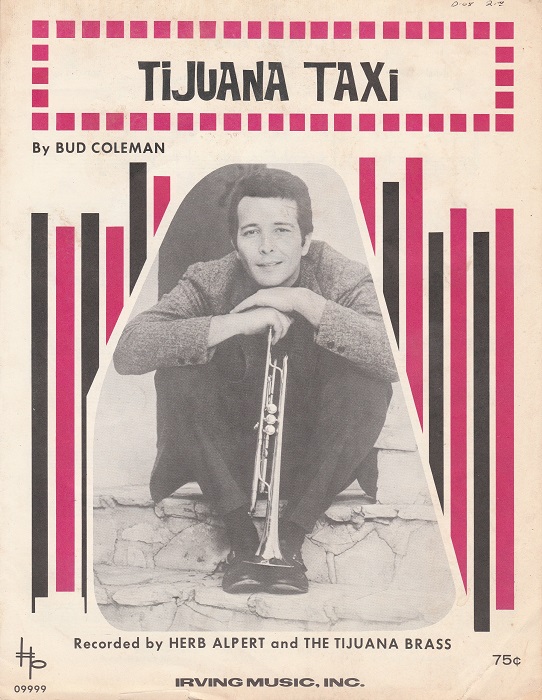
But there were also plenty of tunes reflecting numerous other places around the globe:
| "The Maltese Melody" | "Jerusalem" |
|---|---|
| "Zorba the Greek" | |
| "African Summer" | "Last Tango in Paris" |
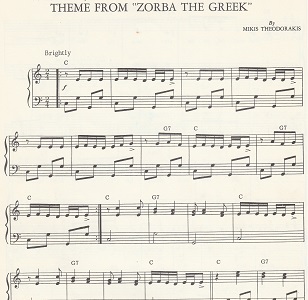
I guess, metaphorically speaking,
he was "Going Places" with these selections!
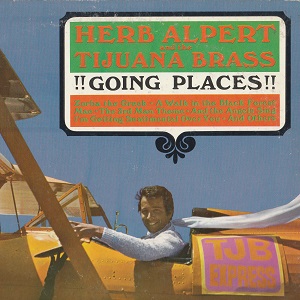
Another example of deviation from the Latin music influence was
his recording of a dixieland tune by famed New Orleans composer
Allen Toussaint. The piece "Whipped Cream" appeared on the album
with the most well-known cover art. (I zoomed in on my copy; if
you want to see the complete image, do your own research.)

His popularity is evident from the
listing in this 1960s pop music book.
He has his own category, and they even
put one of his tunes in a different group.
(Notice the Beatles only have two listings.)
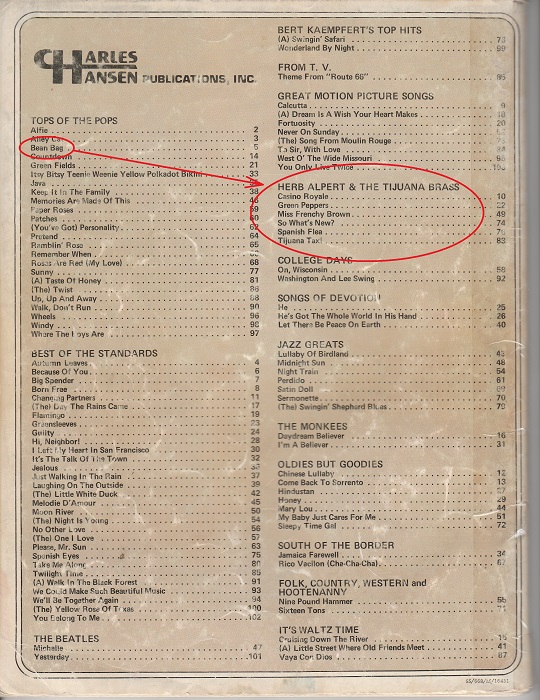
Even when Alpert recorded other artists' tunes,
he made them his own with his distinctive style:
| "I'm Getting Sentimental Over You" | by Tommy Dorsey |
|---|---|
| "What Now My Love" | by Shirley Bassey (& 100 others) |
| "Love Potion No. 9" | by The Clovers & by The Searchers |
| "The Work Song" | by Cannonball Adderley |
| "Mame" | by Robert Preston |
| et | cetera |
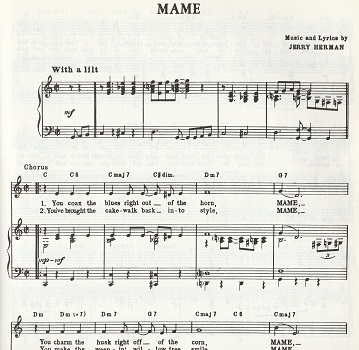
Barry White recorded an instrumental named
"Love's Theme" with his Love Unlimited Orchestra.
It reach #1 on Billboard's pop chart.
Then he recorded his song "Can't Get Enough"
(album "Can't Get Enough of Your Love Babe")
and it also reached #1.
As far as I know, he was the first pop artist
to have a #1 hit with both an instrumental
and a vocal recording.
But not the last.
Herb Alpert did it with
"This Guy's In Love With You" (vocal)
and "Rise" (instrumental).
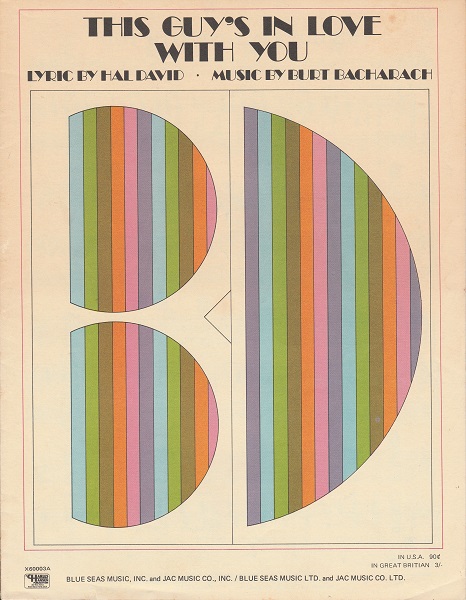

There are twenty volumes of "Herb Alpert Classics." Volume One contains
"A Taste Of Honey," which when compared with the published sheet music,
reveals his distinctive departure from the original composition.


~ FURTHER READING ~
Herb Alpert has enjoyed success,
(well, at least he's had success,
I assume he has enjoyed it,)
in many areas. . . .
|